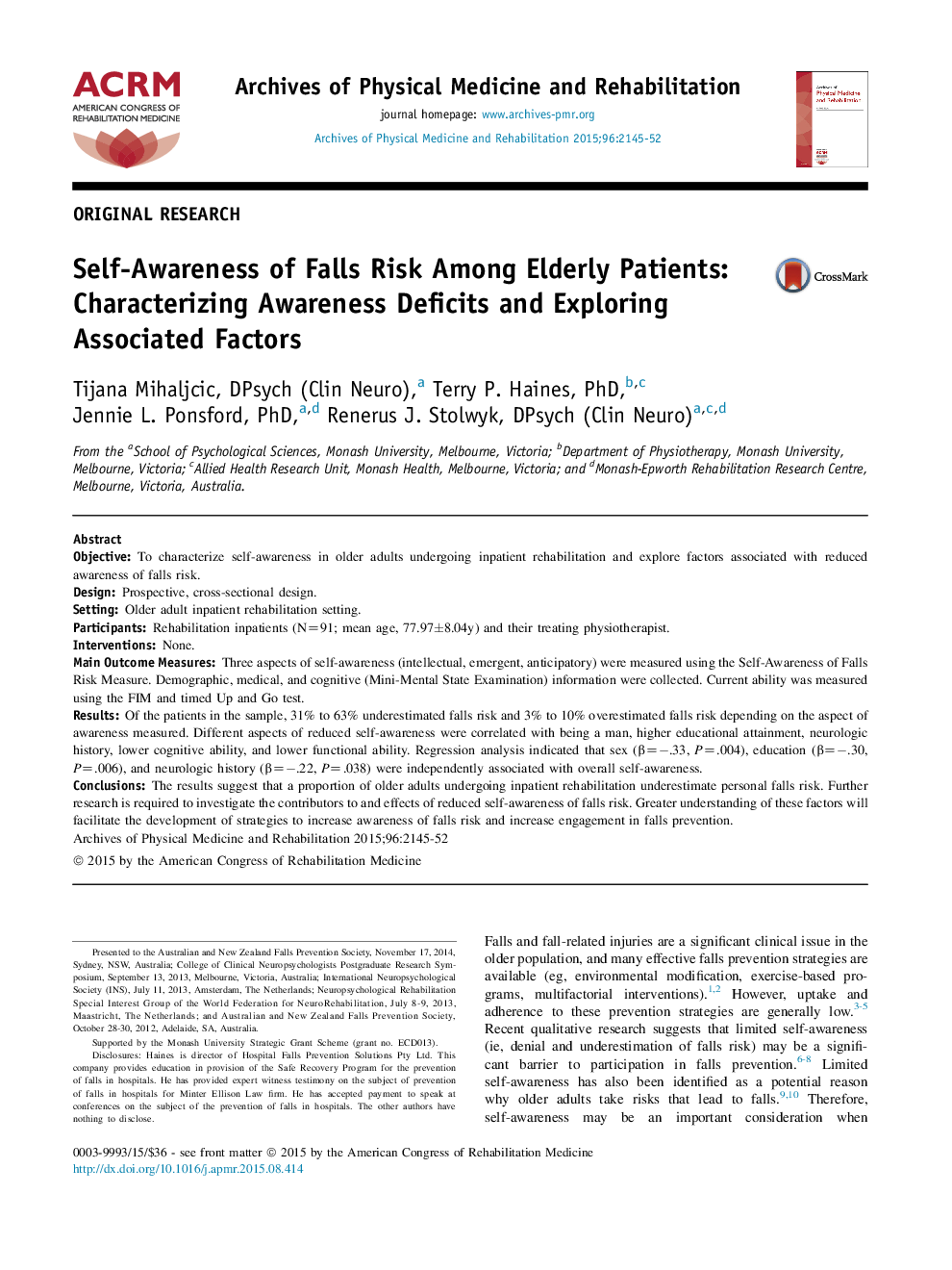| Article ID | Journal | Published Year | Pages | File Type |
|---|---|---|---|---|
| 3448197 | Archives of Physical Medicine and Rehabilitation | 2015 | 8 Pages |
ObjectiveTo characterize self-awareness in older adults undergoing inpatient rehabilitation and explore factors associated with reduced awareness of falls risk.DesignProspective, cross-sectional design.SettingOlder adult inpatient rehabilitation setting.ParticipantsRehabilitation inpatients (N=91; mean age, 77.97±8.04y) and their treating physiotherapist.InterventionsNone.Main Outcome MeasuresThree aspects of self-awareness (intellectual, emergent, anticipatory) were measured using the Self-Awareness of Falls Risk Measure. Demographic, medical, and cognitive (Mini-Mental State Examination) information were collected. Current ability was measured using the FIM and timed Up and Go test.ResultsOf the patients in the sample, 31% to 63% underestimated falls risk and 3% to 10% overestimated falls risk depending on the aspect of awareness measured. Different aspects of reduced self-awareness were correlated with being a man, higher educational attainment, neurologic history, lower cognitive ability, and lower functional ability. Regression analysis indicated that sex (β=−.33, P=.004), education (β=−.30, P=.006), and neurologic history (β=−.22, P=.038) were independently associated with overall self-awareness.ConclusionsThe results suggest that a proportion of older adults undergoing inpatient rehabilitation underestimate personal falls risk. Further research is required to investigate the contributors to and effects of reduced self-awareness of falls risk. Greater understanding of these factors will facilitate the development of strategies to increase awareness of falls risk and increase engagement in falls prevention.
